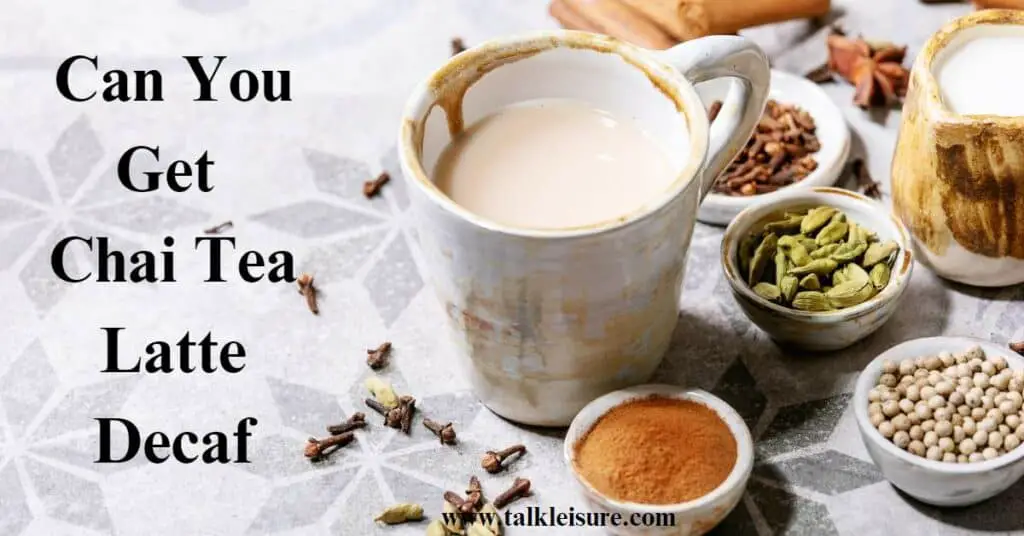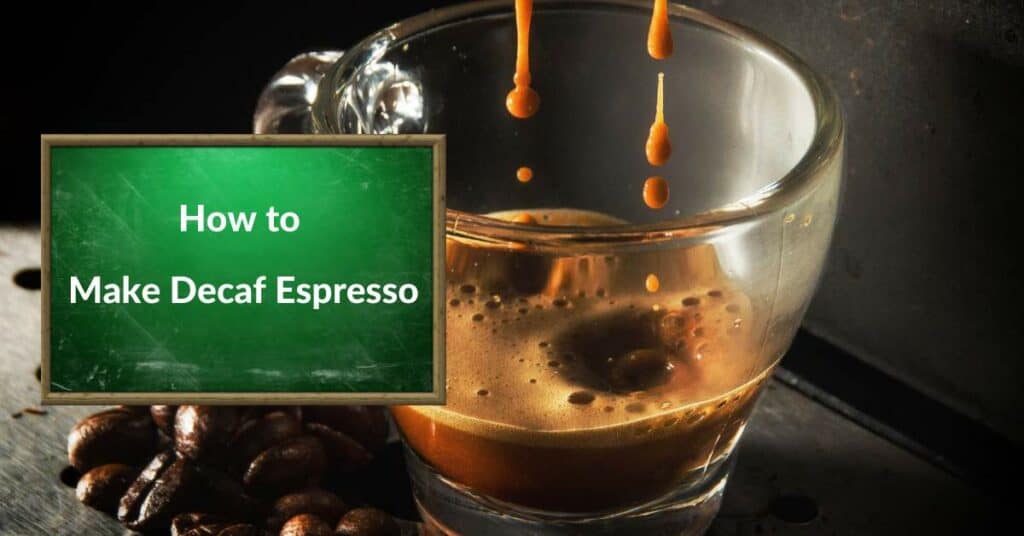For people wishing to consume less caffeine, decaffeinated tea is a well-liked substitute for regular tea.
However, some people worry that decaf tea can irritate the bladder and result in urinary problems.
If you frequently drink a cup of decaf tea, you might be wondering if doing so is good for the health of your bladder.
In this blog post, we’ll explore whether decaf tea really does irritate the bladder and what you need to know about its potential effects on your body.
Let’s get started!
Decaf Tea And Bladder Irritation: What You Need To Know?
Decaf tea is a popular alternative to regular tea for those who want to reduce their caffeine intake.
However, many people are unaware that decaf tea can still irritate the bladder.
The leaves of the tea plant, which contain tannins that might irritate the bladder, are commonly utilized to make decaffeinated tea.
It’s crucial to consider your tea selection if you struggle with bladder control.
It can be a good idea to choose non-acidic beverages, such as herbal tea or decaf tea that is derived from sources other than the tea plant.
If you have any symptoms of bladder irritation, it’s crucial to talk with a healthcare professional to identify the underlying reason and choose the most appropriate treatment option.
What Are Common Symptoms Of Bladder Irritation?

Bladder irritation can cause a range of uncomfortable and distressing symptoms.
It is best to see a doctor as soon as you notice any of the following symptoms because waiting until they get worse is not ideal.
- When urinating, you feel a burning sensation.
- Urge to urinate frequently.
- Small amounts of urination.
- Lower abdominal pain.
- Blood in the urine.
- Strongly smelling urine
What Is The Effect Of Caffeine On Your Bladder?
There is a diuretic effect of caffeine.
Your bladder will fill up more quickly and you will need to urinate more frequently as a result of your kidneys producing more urine.
Some drinks can harm your bladder muscle and make you suddenly feel the need to urinate urgently.
Citrus fruit juices, such as orange juice, and beverages with artificial sweeteners may be included in these beverages.
Alcohol consumption can reduce your awareness of when you need to urinate, which could cause leakage.
Sleeping may be impacted by caffeine. You could not sleep as long or deeply
What Are Some Examples Of Bladder Irritants?
Some foods and drinks have been found to irritate the bladder and worsen symptoms of urinary frequency, urgency, urge incontinence, or bladder pain.
Examples of bladder irritants include:
- All alcoholic beverages such as cigarettes/tobacco, cola drinks, tea, artificial sweeteners, chocolate, coffee.
- Other possible irritants include: Fruits (and their juices): cranberries, grapes, oranges, lemons, peaches, pineapple, plums, apples, and cantaloupe
- Vegetables: onions, tomatoes, chilies, peppers
- Milk/Dairy: aged cheese, sour cream, yogurt
- Grains: rye & sourdough bread
- Seasonings: spices & spicy food, especially peppers, acidic foods and beverages, walnuts & peanuts, vinegar
What Can I Do To Maintain A Healthy Bladder?

- The best fluid for your bladder is water, so you should try to get at least one-third of your daily fluid needs from it.
- Fruit juices that are acidic and can irritate your bladder, such as grapefruit, lemon, pineapple, and orange juice, should be used in moderation no more than one glass per day.
- Change to a less acidic juice, like apple or pear, and diluted with water.
- You can drink diluted squash or barley water but try to stay away from blackcurrant squash that contains sugar substitutes like aspartame and saccharin.
These may cause bladder irritation.
- Reduce your caffeine intake gradually (decaffeinated coffee and tea are fine to drink)
- Although most herbal and fruit teas are caffeine-free and come in a wide variety, ginseng has the potential to stimulate the bladder, which could increase frequency and urgency.
What Types Of Fluids Should I Avoid?
Some beverages might irritate your bladder, which can cause frequency and urgency.
Drinks with caffeine are among them. Caffeine stimulates the bladder.
It can be found in many fizzy drinks, including Coke and Irn Bru, as well as tea, green tea, coffee, hot chocolate, and chocolate.
Caffeine is often added to painkillers look out for the words ‘extra’ or ‘plus’ which means added caffeine.
Alcohol stimulates the bladder and is a diuretic, which means it increases urine output and promotes the kidneys to excrete more water.
The Importance Of Hydration In Bladder Health: How Dehydration Affects The Bladder?

The key to maintaining a healthy bladder is to stay hydrated.
Dehydration can cause an irritated bladder, which can worsen existing bladder problems.
One of the main ingredients in many drinks, caffeine, is also a diuretic since it can make you produce more urine.
This means that even though caffeinated drinks won’t necessarily dehydrate you, they can still irritate the bladder.
Because of this, it’s crucial to consume fewer caffeinated beverages overall and to opt for decaffeinated varieties.
Additionally, promoting healthy bladder health through the consumption of water, squash, diluted fruit juices, milk, decaffeinated tea, and coffee.
You may maintain a healthy bladder and lower your risk of experiencing uncomfortable sensations by making sure to stay hydrated with beneficial fluids and avoid bladder irritants.
Conclusion
In conclusion, while some people may have bladder irritation from decaf tea, there are a variety of other bladder irritants that one should be aware of in their diet.
Because caffeine is a well-known bladder irritant, cutting back on or giving up caffeinated drinks can benefit bladder health.
A healthy bladder requires drinking plenty of water and other non-irritating liquids to stay hydrated.
Supplements like Vitamin C and meals that are good for the bladder can also help to support bladder health.
If you have any severe bladder irritation symptoms, you should seek medical attention immediately to ensure you get an appropriate diagnosis and course of action.
FAQs
01.Does Decaf Tea Affect Urination?
Due to its lower caffeine content, decaf tea is frequently selected as an alternative to regular tea.
However, some wonder if decaf tea can also cause bladder irritation and affect urination.
While decaf tea does include a little amount of caffeine, research indicates that it is unlikely to irritate the bladder or increase the frequency of urination.
In fact, decaf tea may even offer health advantages like antioxidants and hydration without causing the symptoms of an overactive bladder.
Although every person’s bladder reacts to specific foods and beverages differently, decaf tea is typically regarded as a secure and healthy alternative for people trying to cut back on their caffeine intake.
02.What Vitamins Are Good For Bladder Health?
Getting the proper vitamins and nutrients is crucial for sustaining a healthy bladder.
It is well known that vitamin D promotes bone health, and it may also benefit bladder function.
Another essential component, vitamin C, can strengthen the walls of the bladder and lower inflammation, which can enhance bladder health.
In the meanwhile, vitamin B12 can help to maintain the health of your nerves and lower your risk of bladder and urinary tract infections.
Probiotics can also improve bladder health by preserving a balanced population of bacteria in the gut.
03.Does Walking Help Bladder Control?
Yes, getting some exercise can help with bladder control.
The pelvic floor muscles, which are crucial for bladder control, can be strengthened with regular exercises, such as walking.
Additionally, maintaining an active lifestyle can aid in weight control, which is important for lowering the risk of bladder leakage.
Best wishes!












